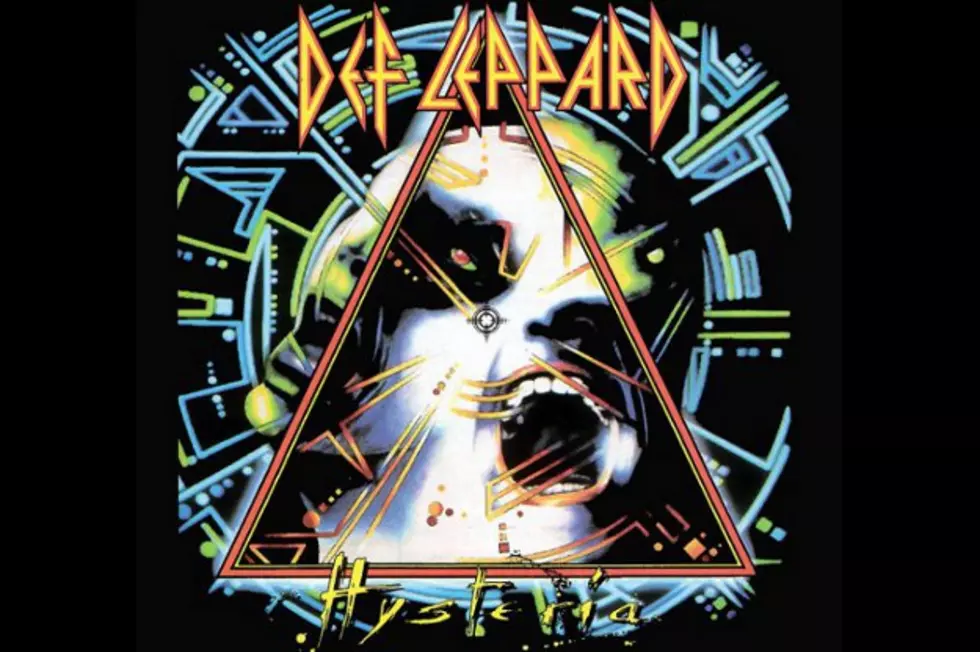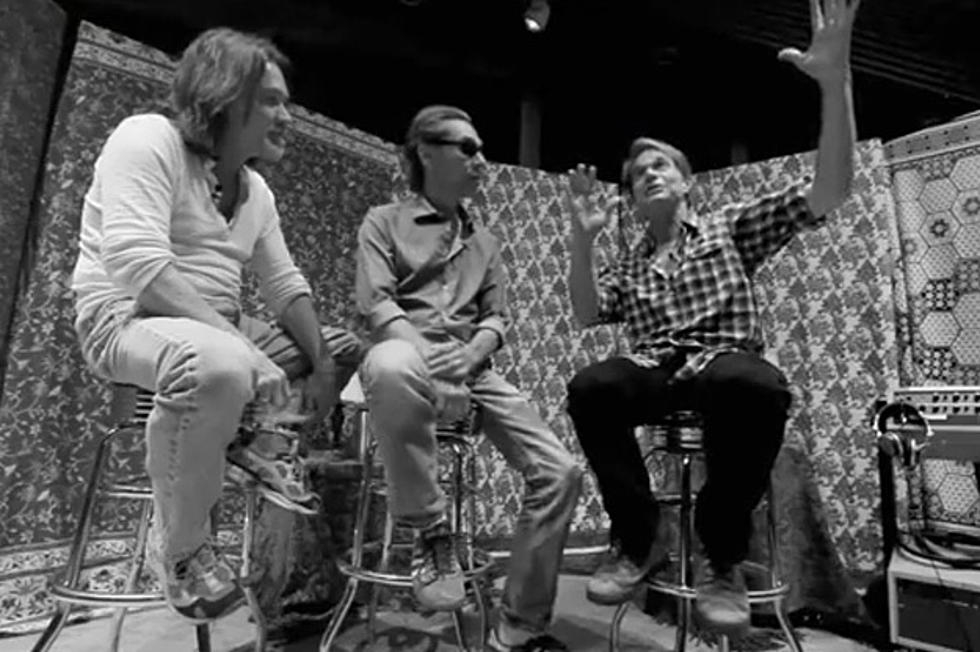
Def Leppard Recalls Failed Attempt to Record ‘Hysteria’ with Meat Loaf’s Producer
In the ‘80s, Def Leppard had one of the most successful albums of the decade with their bombastic 1987 release ‘Hysteria,’ which featured a hefty seven hit singles that charted from the album. As the album marks its 25th anniversary, guitarist Phil Collen told Ultimate Classic Rock how ‘Hysteria’ finally saw the light after the band faced a series of obstacles and an abortive attempt at working with Meat Loaf’s ‘Bat Out Of Hell’ producer Jim Steinman.
The sessions with Steinman came about as a result of normal Def Leppard producer Robert John “Mutt” Lange being unavailable to produce ‘Hysteria.’ Lange was wrapped up working on ‘Heartbeat City’ by the Cars and brainstorming potential replacement producers brought a flurry of possible choices, including Phil Collins of Genesis, believe it or not.
Collen says the band went with Steinman, because he was the only producer name out there “who we’d kind of heard of,” but unfortunately, the pairing didn’t produce the desired results.
“Song-wise, he didn’t really get what we were trying to get and we were so inexperienced we didn’t really didn’t know how to do it [ourselves]. Obviously now it’s a totally different story – you know, I do this stuff on my laptop. [But] even the sound of the band, he didn’t quite get what we were going for.”
Eventually, Mutt came back into the picture. Having written the songs for ‘Hysteria’ with the band in the early days prior to the Steinman sessions, he had a definite game plan in mind for where he wanted to do with the album, aiming for a rock/pop hybrid sound that would become his signature sound (later used to great success with the music of Shania Twain). With Mutt on board, things began to move.
“When we reconnected with Mutt, the album went pretty quickly. We got the stuff done, we were getting that sound, it was very inspiring. We got all of that together in probably about nine months or a year. We were just dicking around before that and not really getting far. So that’s really the reason that it didn’t work out with Steinman really, is because he wasn’t really the guy to be doing it.”
Something that’s very evident from hearing the final product is that Lange pushed the band creatively.
“He’d always be getting me to play things or sing things I couldn’t actually do. ‘You gotta play this chord’ and I go ‘that note is the other end of the fretboard,’ [and he’d say] ‘yeah, just stretch your finger out’ and you’d try this and you’d go ‘f-ck!’ and it sounds great. So there was always that, pushing that thing and there was no excuse, you just tried it and it usually sounded amazing.”
“There was some stuff, he’d say ‘let’s try to take it this direction’ and then it wouldn’t work and then we’d just go back and do something else. So there was always something flowing and I think that was the thing, it was never a dull moment, it was always very, very exciting and just like a learning curve as well. Because most people aren’t that open-minded, they wouldn’t suggest the things that he would be saying.”
In the end, Lange had not only the right ideas creatively, but he also had incredible precision, when it came to forecasting future success for the album.
“He said from the get go, we’re going to have a rock album, but we’re going to have seven hit singles off it and that’s actually how it ended up. We had seven singles and they were all pretty much a hit somewhere and it was great.”
More From KSEN AM 1150










